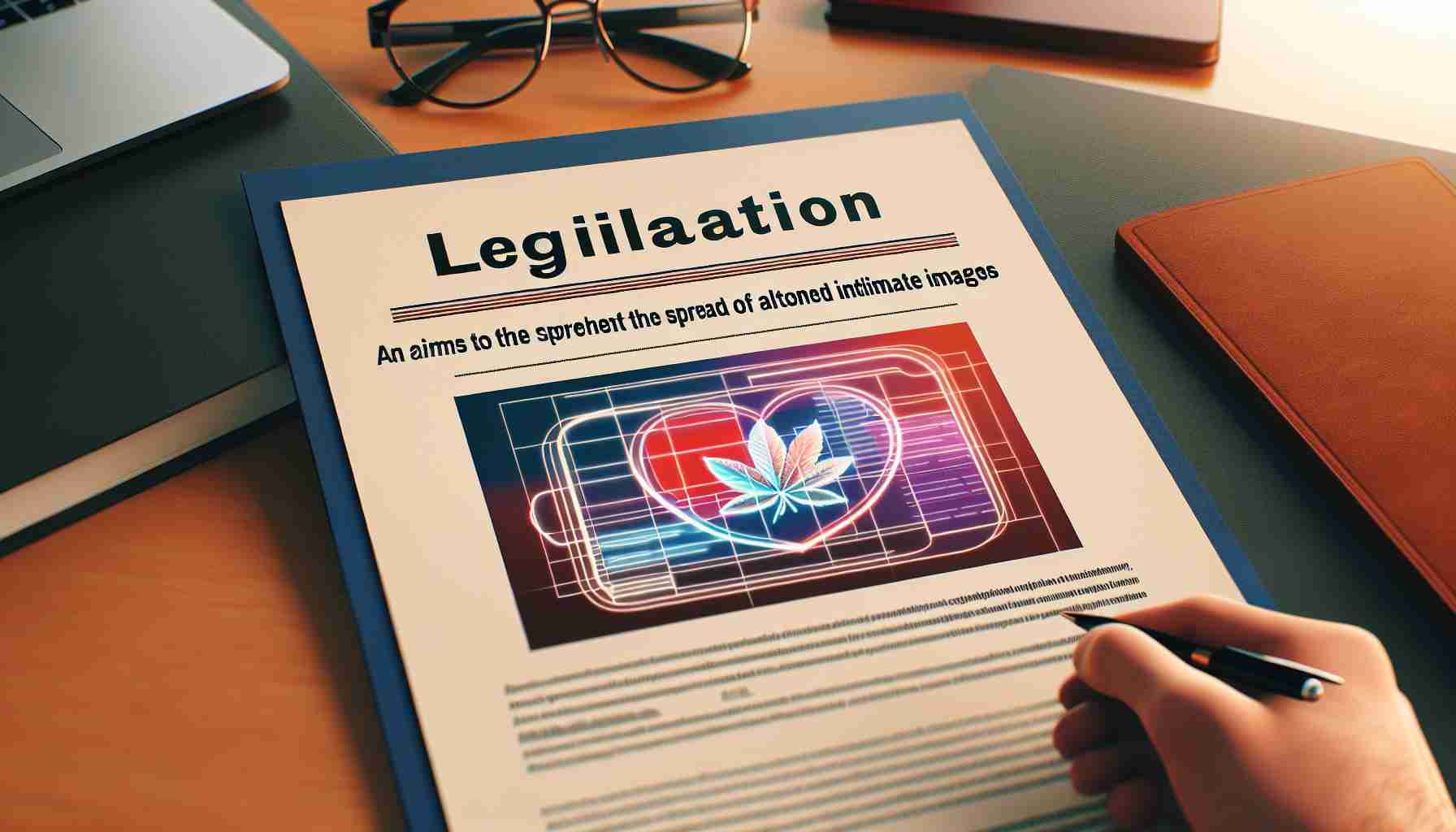The Manitoba government has recently introduced a proposed law to address the issue of computer-altered intimate images. Bill 24, known as the Intimate Image Protection Amendment Act, aims to expand the definition of intimate images to include those that have been altered using electronic means. The law, which was initially passed in 2016, defined an intimate image as a picture or recording that depicts a person as nude, partially nude, or engaged in explicit sexual activity, with an expectation of privacy.
According to Justice Minister Matt Wiebe, the proposed expansion of the definition would enable victims whose images have been altered by artificial intelligence (AI) to sue the individuals responsible for distributing these images. The bill also intends to rename the legislation as the “Non-Consensual Distribution of Intimate Images Act” and serve as a deterrent against the creation and sharing of such images.
The motivation behind this legislation lies in the increasing prevalence of computer-altered intimate images in Manitoba. In December, the Winnipeg Police Service investigated reports of AI-generated nude photos of underage students circulating at a local high school. School administrators alerted families that doctored photos of students had been shared online, emphasizing that the original photos had been obtained from publicly accessible social media and subsequently altered. While no criminal charges were filed in this particular case, the proposed legislation seeks to send a clear message that using AI to generate and distribute such images is against the law.
The proposed law defines a fake intimate image as any visual recording that convincingly falsely portrays an identifiable person as being nude or engaging in explicit sexual activity. The Canadian Centre for Child Protection, based in Winnipeg, has commended Manitoba for updating the act and addressing the issue of fake intimate images. The Centre believes that changes in technology necessitate corresponding changes in provincial laws to adequately protect victims. They assert that the proposed legislation sends a strong message that producing these types of images is unacceptable and serious consequences will follow.
As the legislation moves forward, educational efforts will be crucial in raising awareness among young people about the potential dangers and legal implications of AI-generated deepfake images. The Canadian Centre for Child Protection emphasizes the importance of modifying educational materials to address these concerns.
It is worth noting that the Progressive Conservative Party in Manitoba has expressed their support for this bill. They claim that the proposed legislation aligns with their own intentions, as they had previously given notice of their intent to introduce a private member’s bill with a similar purpose.
In conclusion, the proposed legislation in Manitoba seeks to prevent the spread of computer-altered intimate images by expanding the definition of such images to include those altered by electronic means. This initiative aims to protect victims and deter the creation and distribution of altered intimate images.
FAQ Section:
1. What is the proposed law introduced by the Manitoba government?
The proposed law is known as Bill 24, or the Intimate Image Protection Amendment Act. It aims to expand the definition of intimate images to include those that have been altered using electronic means.
2. How does the proposed law define an intimate image?
According to the proposed law, an intimate image is a picture or recording that depicts a person as nude, partially nude, or engaged in explicit sexual activity, with an expectation of privacy.
3. What is the purpose of expanding the definition of intimate images?
Expanding the definition of intimate images would enable victims whose images have been altered by artificial intelligence (AI) to sue the individuals responsible for distributing these images. The intention is to deter the creation and sharing of such images.
4. What is the motivation behind this legislation?
The motivation behind this legislation is the increasing prevalence of computer-altered intimate images in Manitoba. There have been cases where AI-generated nude photos of underage students were circulating in schools, obtained from publicly accessible social media and altered using AI.
5. What is a fake intimate image according to the proposed law?
A fake intimate image, as defined by the proposed law, is any visual recording that convincingly falsely portrays an identifiable person as being nude or engaging in explicit sexual activity.
6. What organization supports the proposed legislation?
The Canadian Centre for Child Protection, based in Winnipeg, commends Manitoba for updating the act and addressing the issue of fake intimate images. They believe that changes in technology necessitate corresponding changes in provincial laws to protect victims adequately.
7. What educational efforts will be crucial in addressing AI-generated deepfake images?
As the legislation moves forward, educational efforts will be crucial in raising awareness among young people about the potential dangers and legal implications of AI-generated deepfake images. Modifying educational materials to address these concerns is considered important.
8. Who else supports this bill?
The Progressive Conservative Party in Manitoba has expressed their support for this bill. They claim that the proposed legislation aligns with their own intentions, as they had previously given notice of their intent to introduce a private member’s bill with a similar purpose.
Definitions:
– Intimate images: Pictures or recordings that depict a person as nude, partially nude, or engaged in explicit sexual activity, with an expectation of privacy.
– AI (Artificial Intelligence): The simulation of human intelligence in machines that are programmed to think and learn like humans.
– Fake intimate image: Any visual recording that convincingly falsely portrays an identifiable person as being nude or engaging in explicit sexual activity.
– Deepfake images: Digitally altered images or videos created using AI technology to convincingly create realistic content.
Suggested related links:
– Manitoba government
– Canadian Centre for Child Protection
The source of the article is from the blog coletivometranca.com.br

